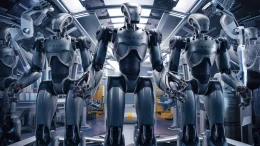A common argument in favor of AI is that it helps people save time at work.
But what if using generative AI is actually more trouble than it is worth? That’s the question posited by Peter Cappelli, a management professor at the University of Pennsylvania Wharton School.
Do we really need AI at work?
During a speech at MIT (via ZDNET), Cappelli explained that cumulatively, given the inherent complexity of AI, the work that goes into automating some tasks is more work than if you just did the task yourself in the first place.
He also adds that “it turns out there are many things generative AI could do that we don’t really need doing.”
He then went on to explain how replacing rote automation with AI is going to end up increasingly expensive. “It’s not so clear that large language models are going to be as cheap as they are now,” Cappelli said. “As more people use them, computer space has to go up, electricity demands alone are big. Somebody’s got to pay for it.”
Another concern raised by Cappelli is the fact that people are still needed either way in order to validate AI’s output.
“If you’re going to use it for something important, you better be sure that it’s right,” he explained. “And how are you going to know if it’s right? Well, it helps to have an expert; somebody who can independently validate and knows something about the topic.
“To look for hallucinations or quirky outcomes, and that it is up to date..We have to check it somehow, and this is not necessarily easy or cheap to do.”
So, what is AI actually good for? According to Cappelli, AI is best served sorting through data. “Somebody’s got to worry about guardrails and data pollution issues,” he said. Which is a lot more boring than revolutionizing the games industry.
Image generated by Ideogram.

















